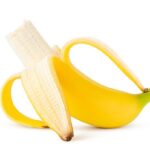Many advertisements for colon cleansers claim that our bodies are full of impacted waste, fecal matter, or “spackle,” leading to various health problems. They suggest that we carry around significant amounts of undigested food and feces, sometimes even comparing it to the weight of a bowling ball. But how much of this is true? Let’s examine the facts behind these claims and separate them from fiction.
The Myth of the “Mucoid Plaque”
Advertisements often feature images of “mucoid plaque” supposedly eliminated by colon cleansers. This “plaque” is presented as a long, gummy, and repulsive excretion, claimed to be toxic buildup accumulated in the colon over years. However, pathologists, colorectal surgeons, and radiologists who have examined thousands of colons have never observed such sludge.
The term “mucoid plaque” was coined by naturopath Richard Anderson, the creator of a popular colon cleanser. The “yucky stuff” displayed in these photos is likely the colon cleanser itself, making an impressive appearance after being processed by the digestive system.
How Colon Cleansers Work
The specific ingredients in colon cleansers vary, but they typically include some form of laxative, such as a fiber blend or an extract of cascara sagrada bark. Common fibers include psyllium husk, flax seed, fennel seed, slippery elm bark, apple pectin, and guar gum. These ingredients stimulate intestinal contractions and can indeed cause frequent bowel movements.
These fibers absorb water in the gut and can swell, which is why drinking plenty of water is essential to prevent intestinal blockages. In rare cases, with the wrong amount of water, the mixture of fibers can be expelled as a long, stringy, slimy mass. This is more likely to occur if the colon cleanser contains bentonite clay, which is sometimes added to “absorb toxins.” However, this is not a typical result and certainly not evidence of toxic buildup being expelled.
The Lack of Scientific Evidence
Despite the claims made by colon cleanser promoters, there is no scientific evidence to support the idea that colon cleansers provide any health benefits. Studies examining the effects of colon cleansers are noticeably absent from scientific literature.
In the early 1990s, guar gum, an ingredient in some colonics, was banned from diet products in the U.S. because it caused esophageal and intestinal blockages. Yet, it is still found in some colon cleansers, with some products even claiming weight loss due to its ability to remove the nonexistent “spackle” from the colon.
A Healthier Alternative
While the cleaning effect of colonics on colons is questionable, their effect on cleaning out bank accounts is not. Instead of spending money on expensive colon cleansers, focus on what you put into your colon.
A diet high in whole grains, fresh fruits, and vegetables is what your colon and the rest of your body truly need. While the results may not be as visually dramatic as the samples seen in colon cleanser ads, you and your bank account will be much healthier.
Ultimately, the idea that we carry pounds of toxic sludge in our colons is a myth. Colon cleansers may provide a temporary sense of cleanliness, but they lack scientific backing and can potentially cause harm. A balanced diet and a healthy lifestyle are the best ways to support your digestive health and overall well-being.
